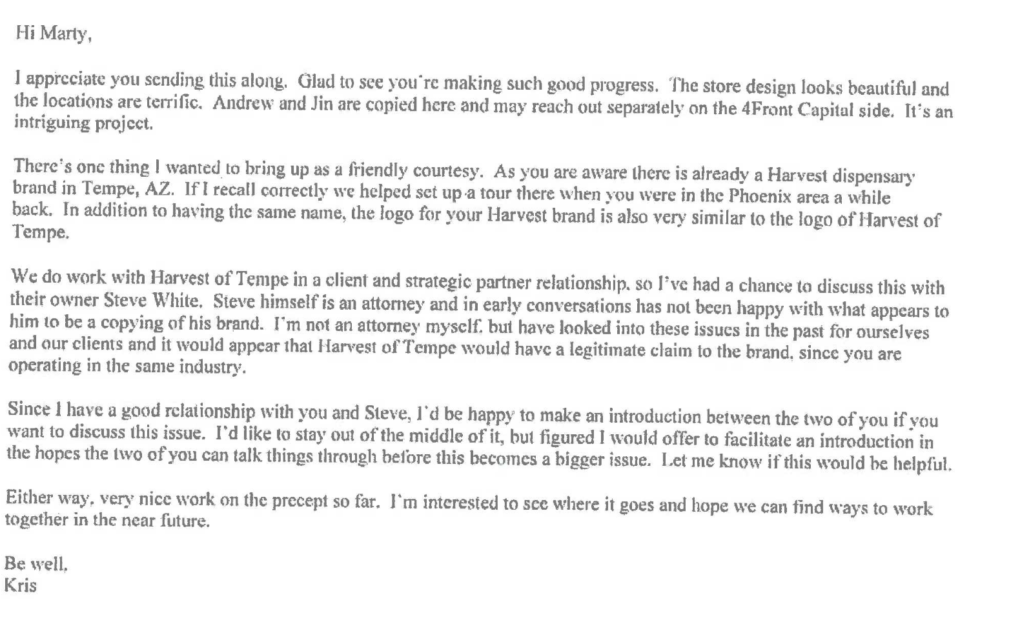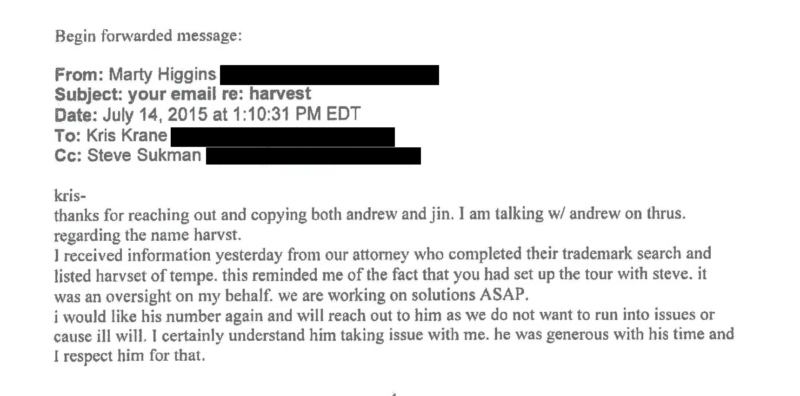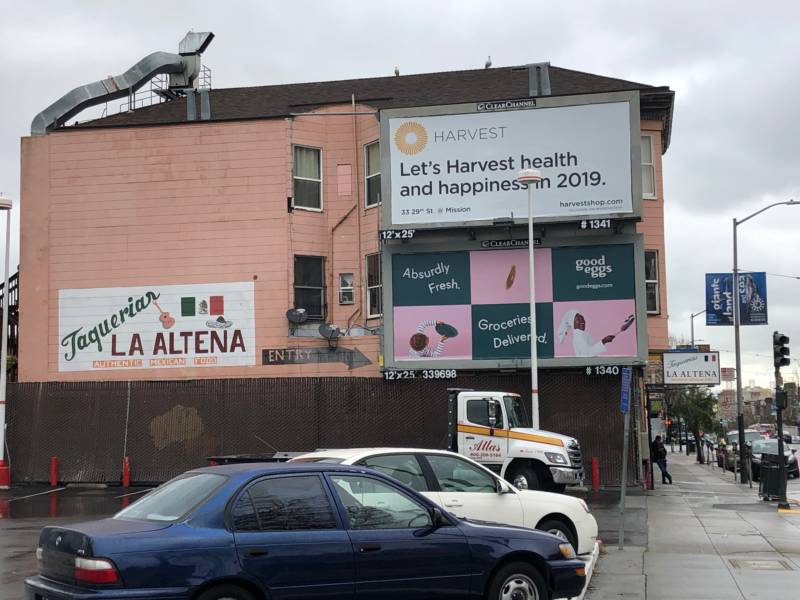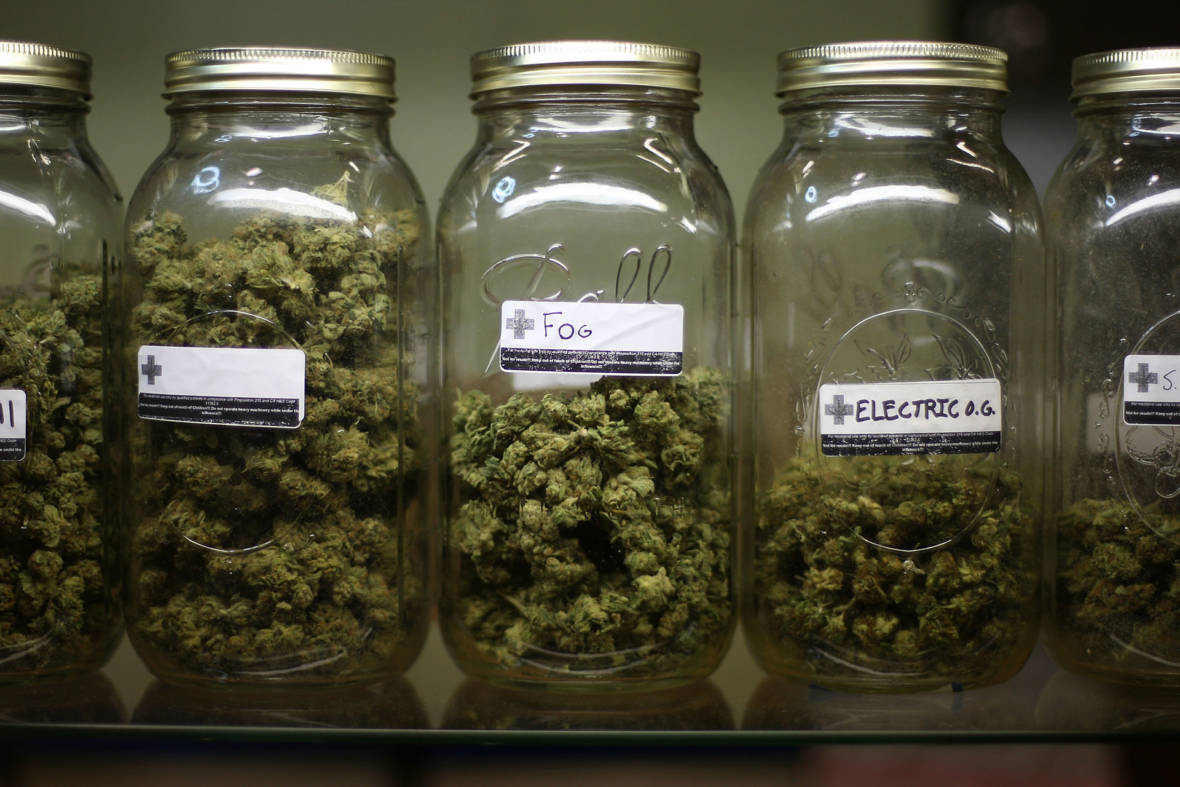In 2017, Harvest of Arizona launched its own legal proceedings in Arizona Superior Court against its Bay Area competitor and its CEO Marty Higgins. The suit accuses Higgins of stealing the Harvest name and logo.
"In February 2014, a mutual friend introduced me to Mr. Higgins and asked me if I would be willing to show him what we were doing in Arizona," said White, explaining the roots of his complaint. "So I spent some time with him and took him through, so he could see exactly how it's set up. We chatted about our plans. He then went back to California and effectively copied just about everything that we were doing."
The Arizona-based Harvest's most obvious complaints against the Bay Area-based Harvest are its alleged copying of the "Harvest" name itself and the similarities of the companies' logos in color and shape.

The mutual friend who introduced Higgins and White recalled his reaction upon first seeing the Bay Area-based company's branding. "That logo looks a lot like Harvest's logo in Arizona. That was one of my first thoughts," said Kris Krane, who is president and CEO of cannabis company 4Front Ventures. "The logo's similar. The name is the same."
Krane said he urged Higgins to reach out to White.
KQED obtained emails that passed between Krane and Higgins from Alex Howe, the Arizona-based Harvest spokesman.
In the first message, Krane alerts Higgins to the potential problem. In his response, Higgins characterizes his use of the Harvest name and similar branding as an "oversight," which he would take steps to rectify.
"We are working on solutions ASAP," Higgins wrote in the email. "We do not want to run into issues or cause ill will."


The Arizona company's legal actions not only accuse the Bay Area company of intellectual property theft, but also assert federal trademark claims to the Harvest name.
According to Howe, the company has two federal trademark registrations — one for the name, and one for the design and logo. Howe said the company started using the branding as early as 2012 and that the first two federal registrations were issued on March 7, 2017 and Sept. 5, 2017.
"We have a valid federal trademark for the name Harvest in the business that we are doing," the Arizona-based company's CEO, Steve White, said.
However, because cannabis is still illegal at the federal level, White admitted the U.S. Patent and Trademark Office likely granted the Arizona Harvest its trademarks without knowing the nature of its business. "The trademark office was likely unaware that we were a cannabis business," he said.
The federal restrictions around doing business in today's cannabis industry are part of the Bay Area-based Harvest's claims for trademark rights over the Arizona company. "We took the position that state law trademarks are the controlling legal authority," said the company's attorney, Michael Dorsi.




